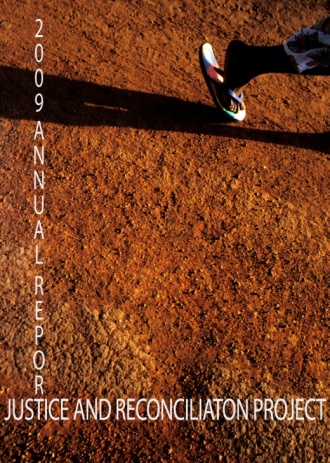
2009 was marked by a significant improvement in the humanitarian situation in northern Uganda as the region embarked on the long road to recovery from conflict. In the wake of a failed attempt to sign the Final Peace Agreement in November 2008, and the resumption of hostilities between the UPDF and the LRA marked by the launch of operation Lightening Thunder, the future of northern Uganda hung in the balance. While many across northern Uganda predicted the worst, the security situation improved substantially, allowing thousands of IDPs to return to their original homesteads while many of the displacement camps were demolished as proof of the finality of the return process. The determination to return to former homesteads and rebuild lives and villages stands as a testament to the capacity of those affected by the conflict to persevere amidst challenges such as lacking educational, health and other social services.
On the transitional justice front, the government of Uganda began to implement elements of the Juba peace protocols still considered valid despite the failure to reach a final agreement. Funds for the peace, recovery and development plan (PRDP) were availed and massive reconstruction works were launched. The government, through the Justice Law and Order Sector (JLOS) working group, also began drafting policies and a framework for the implementation of transitional justice mechanisms. Huge strides were made in setting up the War Crimes Division of the High Court, and countrywide consultations were carried out to solicit views on the domestication of the Rome Statute.
Driven by the desire to pursue justice and reconciliation in Uganda, JRP continued to monitor developments in transitional justice and contribute to policy debates through action oriented research and advocacy in 2009. JRP’s advocacy strategy was dual in nature; at the national level targeting policy makers, donors, and other government organs including the Judiciary, the Amnesty Commission and the Parliament of Uganda; while engaging with grassroots communities at the local level to improve documentation among war affected communities and empower communities to advocate for appropriate justice and reconciliation mechanisms.
JRP has done this using community based approaches, such as community dialogues, dissemination of research reports at the grassroots level, research and documentation of local level transitional initiatives and various other efforts to ensure that the views of grassroots people are included in transitional justice debates. This annual report presents a summary of all activities implemented by JRP in the year 2009. Special thanks go to our donors: the Norwegian Embassy, who made all of these achievements possible.
To access the report, click here
